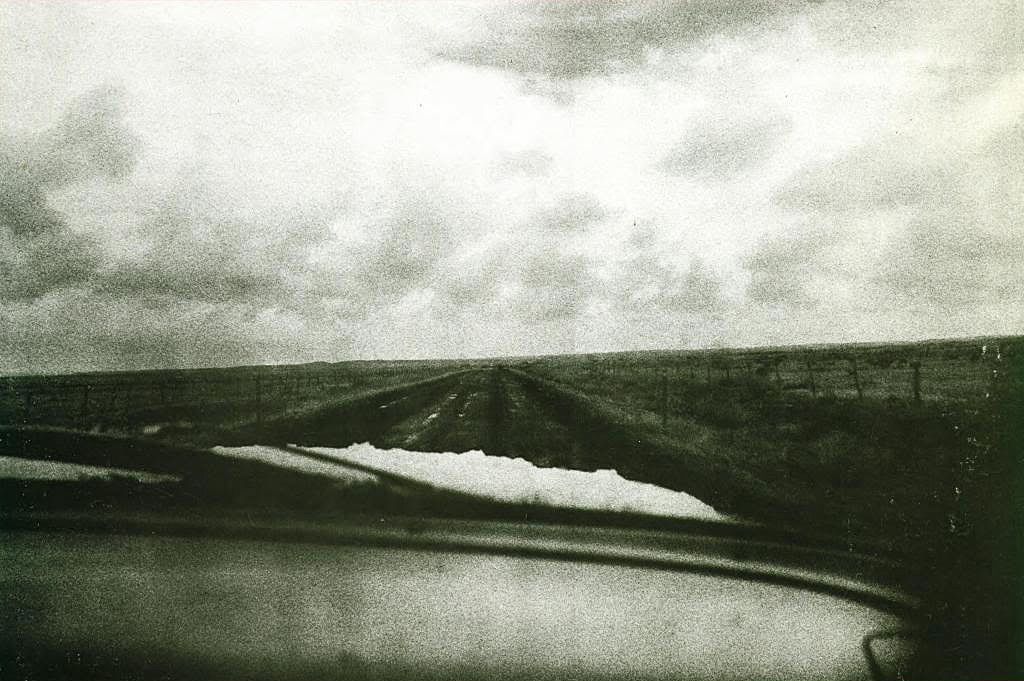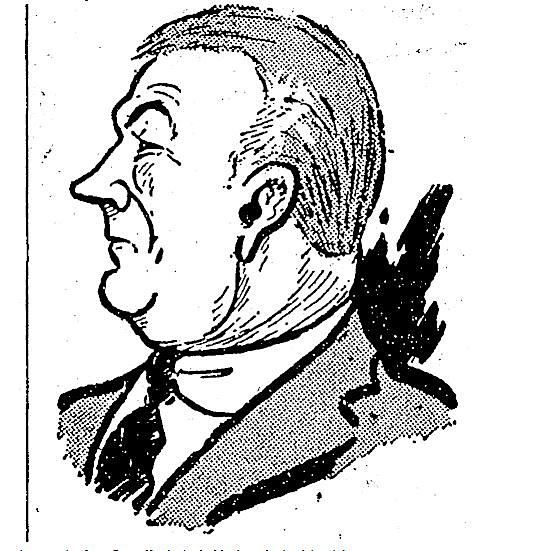Meanness and Putrid Genes: My Nebraska
Alaister J Moghan uses the songs of Nebraska - Bruce Springsteen's most desolate album - to chart his own journey through depression.
‘Maybe you got a kid, maybe you got a pretty wife, the only thing that I’ve got, been bothering me my whole life’
- ‘State Trooper’
For five albums, Bruce Springsteen kept his fears and doubts in check. They bubbled under the surface of his romantic re-imagining of rock ‘n’ roll, infusing themselves into the trouble brewing in his working class characters’ lives. But those characters, and their troubles, were mostly drawn in broad strokes. They didn’t cut deep. That changed in 1982, with the release of the desolate, folk-inspired album Nebraska. Springsteen delved deep into his darkness, and in doing so he charted my own.
Two songs, ‘State Trooper’ and ‘Adam Raised a Cain’ (actually from Darkness of the Edge of Town), triggered what would become my obsession with Springsteen, and particularly Nebraska. Not only were they more accessible to my teenage, punk-leaning ears, but they also said exactly what I felt - something even my favourite punk songs were incapable of expressing. In Nebraska’s 40 minutes, Springsteen explores the depths of his despair, and when I first listened to it, halfway through a law degree and suffering from clinical depression, the album threaded itself into mine. Nebraska signified my despair. It still does.
Our Depression
In his biography Bruce, Peter Carlin outlines the details about Springsteen’s lifelong battle with depression, which Springsteen described as ‘part of his DNA’.
Springsteen’s father Doug suffered lifelong bipolar disorder, and his rages were often aimed at his musical son. Springsteen’s live monologues describe Doug “sitting in his kitchen after work, with the lights off with a cigarette and a six pack… he’d ask me what I thought I was doing with myself. We’d end up screaming at each other.”
I became obsessed with the live video of him telling the story. The ritualistic element reminded me of my father, drinking orange Tui cans alone every Saturday night, getting sadder and sadder; of hearing him crying in the bathtub from my bedroom next door.
What drew me to Springsteen initially was his strong desire to escape: to run away from this “town full of losers”, as he put it in 'Thunder Road'. But Nebraska is all about learning that you can only outrun your roots for so long.
In the end you’re constrained by your rituals, genes, and upbringing. My own depression felt inevitable. As a young man growing up I had an unhealthy fixation on what I saw as an unbreakable chain of depression - from my father, to my grandfather, to my great-grandfather who had euphemistically ‘died by his own hand.’
The violence and nihilism of Nebraska felt even more relevant when I thought of my great uncle Andy, who was behind one of the bloodiest murders of 1920’s New Zealand.
A portrait of my Great Uncle Andy Moghan during his trial.
On a daily basis, I feared this inherent ‘meanness’ would find its way to me. At its worst, depression felt like a foregone conclusion. One of the more optimistic accounts of depression is that it’s a mental injury that heals, just like pulling your hamstring. But I often felt like the lamented Black Caps’ fast bowler Shane Bond, perennially breaking down. I felt like I had what Springsteen termed ‘a meanness’ inside me.
A Meanness Inside You
Springsteen recorded Nebraska in isolation, both physically and emotionally. Its content reflects his circumstances, describing feelings of lost control, constant doubt, violence, alienation, desperation, bitterness and disappointment. Springsteen is inside the lives of his scarred and desperate characters; his mental state somehow written in their sordid lives.
The characters’ reality or plausibility isn’t the point; it’s that their distress describes the depressive cycle. In his bestselling memoir The Noonday Demon, writer Andrew Solomon says that depression can only be described in ‘metaphor and allegory.’ Nebraska is effective partly because its characters don’t describe why or how they feel, but what they think and how they wish to act. It refuses to fall back on the cliched metaphors of depression. There are no ‘black dogs’ or ‘dark monsters’; just real people responding to a world that doesn’t fit them.
The closest Springsteen comes to directness is a vague reference to the ‘meanness’ of life. The concept is introduced on the album’s titular opening track. Nebraska begins with a simmering harmonica and a sick twist on Springsteen’s usual ‘guy riding alongside a girl’ set-up:
‘…me and her went for a ride, sir, and ten innocent people died.’
The song details the mass murder committed by Carl Starkweather (a story which Springsteen traced back from Terrence Malick’s Badlands), while also delving further into Starkweather’s psyche. Springsteen presents the murderer as a sick romantic, only wanting to have his ‘little baby’ girl sitting on his lap in his final moments on the electric chair. When Starkweather is finally asked his motive in the final line, his answer reveals only emptiness:
‘They wanted to know why I did what I did. Sir I guess there’s just a meanness in this world.’
Despite the song’s murderous content, to me, the meanness of Nebraska is depression. This interpretation is open, as meanness remains a vague term. It might refer to one's economic or social standing, their luck or even their genetics. Whatever it is, as music writer Anthony DeCurtis puts it, it ‘finds itself in you, then explodes’.
As it goes on, Nebraska’s meanness isn’t simply a justification for violent action, but self-limiting dogma. Take the inferiority complex of the embarrassed child narrators in ‘Mansion on the Hill’ and ‘Used Cars.’ While both speak of embarrassment from a social class perspective, my attitude came out in a delusional inferiority complex toward people in my law school class, who I convinced myself either looked down upon me or pitied me. This attitude of meanness becomes harder and harder to break, the longer you experience depression.
At its worst, depression operates as a perfect Catch-22. As much as you hate thoughts of self pity, they provide comfort. You want to connect with others and let the hurt out, but worries about your own selfishness and perceived perversions make it difficult. Self-pity begins to feel almost natural; inescapable.
Putrid Genes - The Cause
Springsteen alludes to this inescapability - most directly in ‘State Trooper’ - with the line “maybe you got a kid, maybe you got a pretty wife, the only thing that I’ve got, been bothering me my whole life.’ ‘State Trooper’ is the bleakest track on Nebraska. In a retrospective book on the album in 2011, David Burke would call it ‘the sound of suicide’...‘unbearably desolate’.
Its restrained spookiness mesmerises me. Twin minor chords quietly thump in the background while Springsteen sings in a near-whisper, painting a picture of a dangerous man driving down the New Jersey turnpike. The chorus, if you can call it that, has this man either meekly pleading for help or downright threatening an imagined enemy - ‘Mr State Trooper please don’t stop me, please don’t stop me, please don’t stop me,’
Springsteen’s voice gets more tense and quickens in the second verse. The narrator’s lines turn into ranting about ‘talk show stations’ and ‘losing his patience’, before returning to the ‘please don’t stop me’ plea and climaxing with a blood-curdling Alan Vega-like scream (the influence of Vega’s NYC synth-punk act Suicide on Nebraska has been canvassed a lot).
The song was included in the final episode of Season 1 of The Sopranos, playing over a climatic family dinner where Tony Soprano tells his family to ‘remember the good times’ It undermines the sentiment of the dialogue, foreshadowing a bleaker future for the family.
The connection was important to me. The Sopranos, and James Gandolfini’s portrayal of the manic-depressive mob boss, were a twin obsession alongside Springsteen, a key to a lot of what was going down for me from my late teens to my early twenties..
Much later, in Season 6 , Tony speaks with his therapist about his son AJ, who has just attempted suicide. Like the character in ‘State Trooper’, Tony writhes and boils over as he speaks about his inherent depressive DNA: like a rotten core which he can’t rid himself of, and that AJ now adopts.
Tony Soprano: ‘It's in his blood, this miserable fuckin' existence. My rotten, fuckin' putrid genes have infected my kid's soul. That's my gift to my son.’
‘My Father's House’ - Ruminations and Obsession
Grappling with depression sometimes becomes an obsession in itself. What ‘depresses you’ is the frustration of knowing that you get depressed. As Tony says, the more you learn about it, the more you feel like “now I’m trapped here forever.”
It’s an obsession Springsteen shared by 1982. ‘My Father’s House discusses his habit of visiting his old family home (the ‘beacon that calls him in the night’). After dreaming of visiting the house, he imagines ‘the hard things that pulled us apart.’ The narrator then visits the house and the new owner says ‘that no-one lives here anymore’. In a 2012 New Yorker profile Springsteen recalls his therapist interpreting these visits:
‘Something went wrong, and you keep going back to see if you can fix it or somehow make it right.’
In between its self-loathing and rumination, Nebraska seeks action. As Robert Christgau observes, Nebraska doesn't hold any redemption or heroics, but stuck at rock-bottom, something has to give. ‘You’re defeated and that sucks - what are YOU going to do about it?’
Just a few years earlier, Springsteen’s characters ran wild, drunk on the possibility of freedom. By Nebraska, the notion of escape had been replaced by a reality that plenty of people who have struggled with mental health issues will recognise - what John Kirwan once candidly described as “terrible fears of violence and insanity”, flooding one’s mind.
So it is that songs like ‘Atlantic City’ carry little romance and a lot of desperation. It’s a story about the getaway ending in failure - of being unable to control your circumstances, and erupting into drastic, irrational measures.
In Heart of Darkness, David Burke examines how the song is the start of a much more cynical Springsteen ‘escape’ narrative. The initial verses frantically set up the victims, violence and gang backdrop and ‘conjure up a nightmarish tableau-the New Jersey shore as the abyss’. Burke views the chorus as a desperate offer for reincarnation, with the promise of the Atlantic City casino. But following this, it becomes clear that this promise is broken. The narrator reassures his girl that everything will work out, but soon realises he will need to do a dirty favour to survive
'He’s the guy with a film of sweat where a moustache should be, jelly legs walking the plank, clutching his wife’s arm for support, their life savings in the handbag slung from her exposed bony shoulder. And then you hear him, in the bridge of the song, trying to assure her, trying to assure himself; things may be bad now, but things will get better. But suddenly we’re plunged into the resignation of the final verse….You get the feeling that even the money he drew from the Central Trust, his gambling loot, has been gambled away. The promise of Atlantic City, like the promise of America, is a broken one. There is nothing down for him if he plays it straight, so he’s not going to play it straight any more.'
The Crack of Light
One of the most famous lines from any depressive in popular music is also one of its most potent and hopeful. It’s the closer to the chorus on Leonard Cohen's ‘Anthem’ - there's a crack in everything, that’s how the light gets in.
The crack of light in Nebraska only appears at the very end. ‘Reasons to Believe’ is about people in desperate, embarrassing situations: an old man trying to revive his dead dog by poking it with a stick, a lover abandoned by her boyfriend, and, finally, a groom left waiting on his wedding day. David Burke considers the final scenario is:
'...possibly the overriding image on Nebraska. It compresses the album’s many themes into a single dominant theme: namely, that faith, like suffering, is a solitary thing.'
In each circumstance, Springsteen’s characters look for hope in the face of suffering. The old man thinks "the dog will get up and run"; the abandoned groom watches a river rush by ‘effortlessly’ as he resigns himself to being left at the altar. No promises are made; there’s only a realisation that people have to find some kind of hope to continue. Whether it exists or doesn’t is beside the point.
In my struggle with depression, the message of ‘Reasons to Believe’ was more helpful than you’d think. Rather than proposing a solution, Springsteen accepts the world as it is - having drawn us through the obsession and panic it took to get there. He realises sometimes ‘there’s just a meanness in this world’, and in yourself, and that you have to find ways to keep on going anyway.
That was the final lesson of Nebraska to me. That sometimes you have to give up on trying to fix things, and just let them be. That to get through life with depression, you have to stop looking at what’s come before, and find your own reasons to want to.
Sources
Dave Marsh - Glory Days
Irish Times - 'Fear and Loathing and Bruce Springsteen'
The New Yorker - 'We Are Alive: Bruce Springsteen At 62'
Bruce Springsteen - Under Review 1978-1982 Tales of A Working Man (interviews include Larry David Smith, Anthony DeCurtis and Robert Christgau).
David Burke - Hearts of Darkness: Bruce Springsteen's Nebraska


